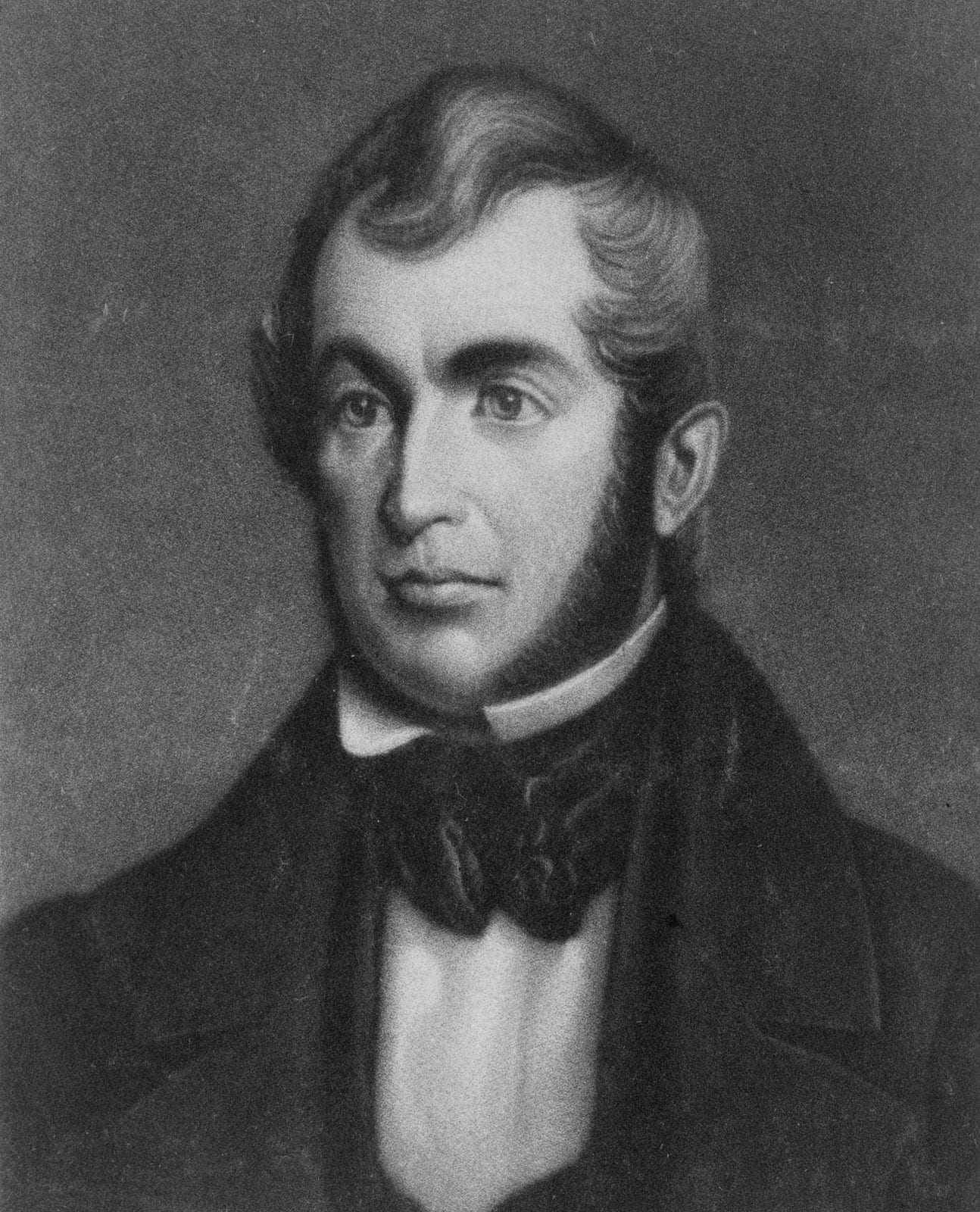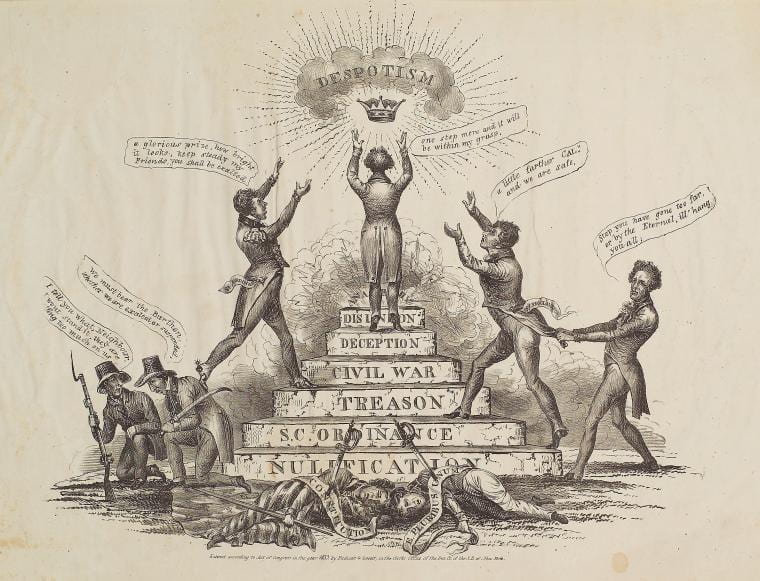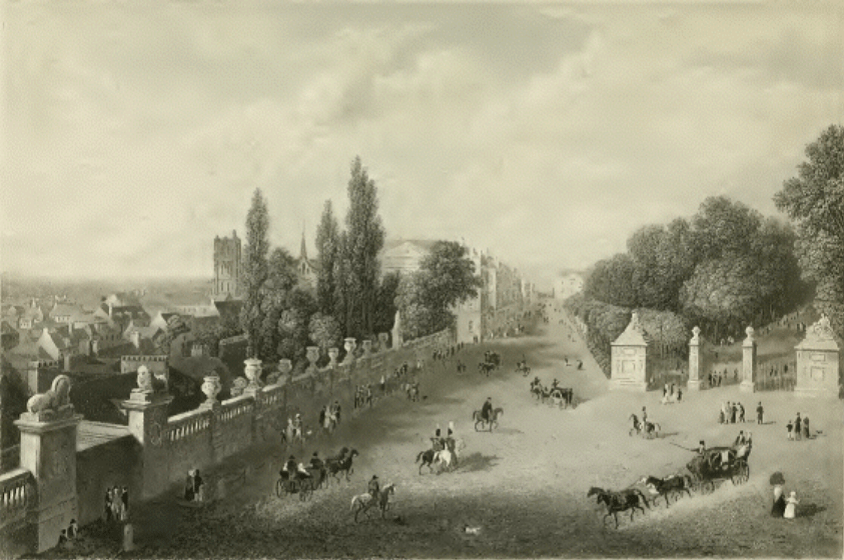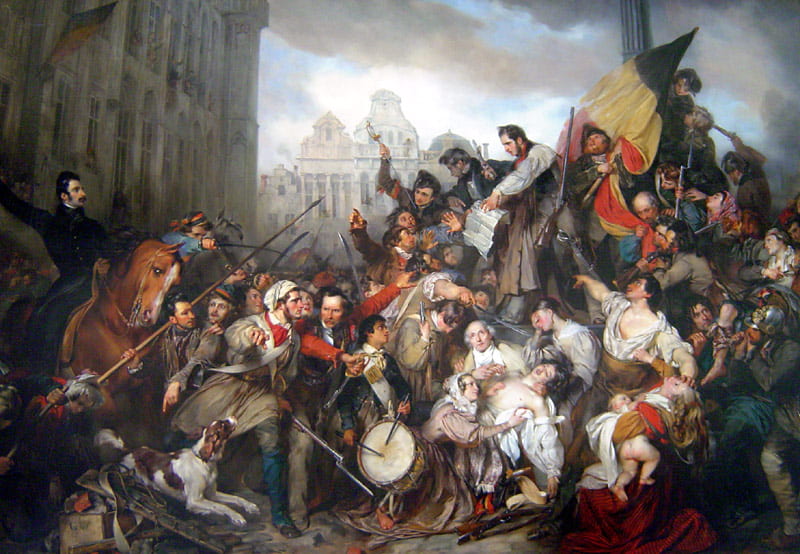by Derek O’Leary
 Hugo Swinton Legare engraved by T. Doney, c.1830-1850.
Hugo Swinton Legare engraved by T. Doney, c.1830-1850.
From the Brussels diary of Hugh Swinton Legare (1797-1843), while US chargé d’affaires there:
24th May [1832]: Nothing remarkable; stretched off on a sofa today in the salle-à-manger, while my valet-de-chambre reads to me the preface to Erminier’s Philosophy of Law; and a soothing air breathing all the sweets of my little garden, and whispering in my ear where he stole them. I determined to let my friends in America know how well I am learning to do without them, and to paint in the most glowing colors the charms of the elegant epicurean existence I am leading here. (Mary Legare, ed., Writings of Hugh Swinton Legare (Charleston, S.C.: Burges and James, 1846)
Legare regularly griped that his diplomat’s salary couldn’t sustain life in Brussels, capital of Europe’s newest state when he arrived in 1832. He had left a somewhat comfortable existence as South Carolina’s attorney general and editor of his Southern Review (1828-32), a short-lived but unabashedly literary journal based in his native Charleston, which showcased his expertise in the Classics. Later that year, he fumed privately about his $500 yearly discretionary fund, “the niggardly, and, what is worse, (I suppose,) narrow-minded and foolish policy of thus attempting to circumscribe contingency, and reduce their diplomatic representative to the condition of a broker’s out-door clerk!” (Diary, 22 August 1832). Legare kept this diary during the first of his three-year stint in Brussels, before returning to political life in the US, where before his early death he would assume a crucial role as US Attorney General in President Tyler’s unsettled administration. (Then, not as now, diplomatic postings were a reliable stepping stone to higher office; as Legare arrived in Brussels, future president Martin Van Buren was departing his ministership in London, and James Buchanan beginning his in Saint Petersburg.) He catalogs mornings of bookish leisure and evenings of opulent ennui among the titled, lettered, and moneyed elite of the capital.
 Anti-Nullification Lithograph by Endicott and Swett (1833) in New York Public Library Digital Collections. Before he departed for Brussels, Legare had ardently opposed the movement in South Carolina to “nullify” federal tariff legislation deemed disadvantageous for the state. His vocal opposition gained him favor with the Jackson administration, helped secure the posting in Brussels, and granted him a respite from that rancorous political crisis.
Anti-Nullification Lithograph by Endicott and Swett (1833) in New York Public Library Digital Collections. Before he departed for Brussels, Legare had ardently opposed the movement in South Carolina to “nullify” federal tariff legislation deemed disadvantageous for the state. His vocal opposition gained him favor with the Jackson administration, helped secure the posting in Brussels, and granted him a respite from that rancorous political crisis.
Legare’s grumble about paltry State Department support is a refrain that echoes from US consular and diplomatic posts throughout the Atlantic in the country’s first half-century. Consuls— unsalaried and numbering nearly 150 during Legare’s tenure—had long been expected to get by through their own, sometimes suspect, commercial endeavors (this would change only in 1856). As consulates burgeoned from the 1830s, they became outposts of the federal spoils system, eagerly sought by many, bestowing a scintilla of authority, but granting only a tenuous lifestyle. Diplomatic posts remained relatively underpaid, legacy of the early republic’s suspicion of the value of “diplomatists” and their relevance for US geopolitical interests.
 Engraving from Lieutenant Colonel Batty’s Select Views of the Principal Cities of Europe (1832), overlooking the avenues across from the Royal Palace, a social corridor for Legare.
Engraving from Lieutenant Colonel Batty’s Select Views of the Principal Cities of Europe (1832), overlooking the avenues across from the Royal Palace, a social corridor for Legare.
Yet given Legare’s salary of $4500, the light duties imposed by his office, and his well-heeled company, we might be unimpressed by his complaint. As he mines the city’s cultural resources, learns German, and flirts with European aristocrats, his diary is indeed a catalog of disaffection: he finds constant fault with his domestic servants, whom he accuses of dereliction and theft; he grows tired of the physical and social climate; he complains about import duties on his wine and hosts’ poor choices of Chinaware and weak Belgian oratory, and he positively bristles at the slightest imputation against the United States and ongoing Nullification crisis in South Carolina. He skirts Frances Trollope—“the Trollope”— like a blight during her visit to Brussels, following the publication of her excoriating Domestic Manners of the Americans (1832). Perusing his diary and personal correspondence, one does suspect a pervasive depression–recurrent “blue devils,” he names them. In a broader sense, though, this is all a recognizable performance of expatriation. At a moment of teeming national confidence, European travel became available to far more Americans, and with it a fairly narrow traveler’s script. Along these lines, Legare consumes the language, literature, and prestige of Europe at the same time that he asserts his distinctiveness from it; he suffers his solitude abroad while vaunting the experience to his American correspondents. As a highly learned South Carolinian doubly diminished vis-à-vis New England literary culture and Europe, the new, fragile Belgian state provided an especially welcome foil for his lifelong exercise in literary regionalism and nationalism.
 Épisode des journées de septembre 1830, Gustave Wappers (1834). Legare was the first US diplomat to Belgium, once the dust settled from its rupture with the Kingdom of the Netherlands. Legare ushered forward the first commercial treaty between the US and Belgium.
Épisode des journées de septembre 1830, Gustave Wappers (1834). Legare was the first US diplomat to Belgium, once the dust settled from its rupture with the Kingdom of the Netherlands. Legare ushered forward the first commercial treaty between the US and Belgium.
But rather than just another elite wanderer or beneficiary of the ballooning federal spoils system, Legare allows us an insight into a different type of diplomatic and consular history, which can both add more depth to that field of study and suggest a broader, more complex context for understanding American literature during this period.
Legare’s account of an evening’s exchange with Lieut. Col. Jeffreys, a West Indian planter, is suggestive of the multiple roles performed by diplomats and consuls. It was months before Britain’s 1833 abolition of slavery in the islands, and dreading a post-emancipation future in the Caribbean, Jeffreys planned to immigrate to the US rather than Europe. Seeking “renseignemens,” he came to Legare, who records:
…he has no hope of Europe, and, as a West-Indian, very little feeling of amor patriae for England…besides his West-India cidevant property, he can scrape together £23 or £24,000, of which a good deal is in American stocks now. I lend him a number of the Southern Review, containing an article on Flint’s Valley of Mississippi…Advise him, by all means to go; that it is the only country which has an avenir, and the world might well be divided thus,—Europe for bachelors and their suite; America for family men and theirs. (Writings, 17-18)
Here we encounter the intersection of the geopolitical and literary, a recurrent phenomenon in many small moments of diplomatic and consular life. Two large themes deserve attention. The first is Legare’s promotion of American expansionism and stark dichotomy between the fates of the Old and New World, whatever his anxieties about the ongoing nullification crisis. Matthew Karp has recently depicted a new, compelling context to read this spare comment in This Vast Southern Empire: Slaveholders at the Helm of American Foreign Policy (Harvard UP, 2016): despite popular narratives of southern opposition to federal power, in the antebellum decades Southerners wielded its foreign policy apparatus to bolster slave-based economies in the Western Hemisphere. Legare’s tenure preceded the focus of that story, and though a former slaveholder, he was hardly a missionary for its expansion. But in this rhetoric and his anxious efforts to make slow-churning Belgian administration ratify an advantageous bi-lateral trade deal, he certainly promoted an ambitious version of his country’s future dependent on slave labor.
More to my point, however, Legare furnishes a copy of his literary journal the Southern Review, which included an article on the Mississippi, where Jeffries could presumably reinvest his capital and continue his slave-based agriculture. It is a small gesture that links the US’ geopolitical aspirations, as it cleared the Southeast of its indigenous populations, with Legare’s literary labor, as he presented his Southern intellectual production to European critique. Legare’s time in Europe is interesting in itself because the exchange between Europe and Southern writers in this period has received far less attention than transatlantic relations with New Englanders. But Legare also represents the broader constellation of US diplomats and consuls who acted as cultural intermediaries with Europe, well before public diplomacy became an institutionalized practice. Like Legare, they frequently distributed US periodicals and literature to Europeans, circulated European writings among themselves, and forwarded them back to US audiences. Meanwhile, they acted as literary agents, expediting books and archival documents to writers in the US. For instance, as minister and consul to Madrid, respectively, Alexander Hill Everett and Obadiah Rich dispatched materials to Boston historian William Hickling Prescott, which would inform his colossal works on Spanish empire (including The History of the Reign Ferdinand and Isabella in 1837 and History of the Conquest of Mexico in 1843). Meanwhile, consuls and diplomats helped to publish US books for European audiences, such as long-serving consul to London Thomas Aspinwall, who facilitated the publication of such works as Washington Irving’s biography of Christopher Columbus in 1828. Their reflections on life abroad were diffused in the US press and were crucial in elaborating US perceptions of an increasingly interconnected world, including James Fenimore Cooper’s series of European sketches, published in the 1830s following his (mostly absentee) consulship in Lyon.
Legare played his small part in this story, in which the inchoate foreign policy infrastructure of the state also served the literary projects of an expanding nation shaking off an ingrained sense of cultural inferiority vis-à-vis Europe.



July 5, 2017 at 10:37 pm
Reblogged this on IBHE Collaborative University.